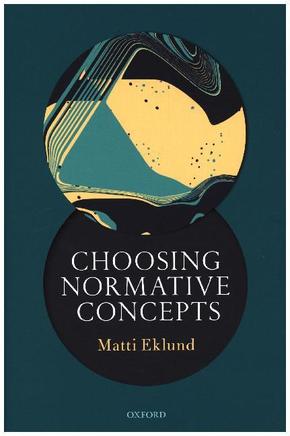
Choosing Normative Concepts
| Verlag | Oxford University Press |
| Auflage | 2017 |
| Seiten | 232 |
| Format | 16,8 x 24,0 x 1,8 cm |
| Print PDF | |
| Gewicht | 508 g |
| Artikeltyp | Englisches Buch |
| ISBN-10 | 0198717822 |
| EAN | 9780198717829 |
| Bestell-Nr | 19871782EA |
The concepts we use to value and prescribe (concepts like good, right, ought) are historically contingent, and we could have found ourselves with others. But what does it mean to say that some concepts are better than others for purposes of action-guiding and deliberation? What is it to choose between different normative conceptual frameworks?
Theorists working on metaethics and the nature of normativity typically study goodness, rightness, what ought to be done, and so on. In their investigations they employ and consider our actual normative concepts. But the actual concepts of goodness, rightness, and what ought to be done are only some of the possible normative concepts there are. There are other possible concepts, ascribing different properties. Matti Eklund explores the consequences of this thought, for example for the debate over normative realism, and for the debate over what it is for concepts and properties to be normative. Conceptual engineering - the project of considering how our concepts can be replaced by better ones - has become a central topic in philosophy. Eklund applies this methodology to central normative concepts and discusses the special complications that arise in this case. For example, since talk of improvement is itself normative, how should we, in the context, understand talk of a concept bei ng better?
Inhaltsverzeichnis:
1: Ardent Realism
2: Alternative Normative Concepts
3: Qualifications and Objections
4: Normative Concepts
5: Normative Properties
6: Presentationalism
7: Being Against What Is Plainly Right
8: Connections
9: Thick Concepts
10: Some Metaphilosophical Issues
11: Concluding Remarks
Rezension:
Matti Eklund's excellent Choosing Normative Concepts is a rich and wide-ranging book. ... The book is well-argued, engaging, clear and simple in style, and rewards careful study. I highly recommend it to anyone with an interest in metaethics and metanormativity. Nicholas Drake, Journal of Moral Philosophy
